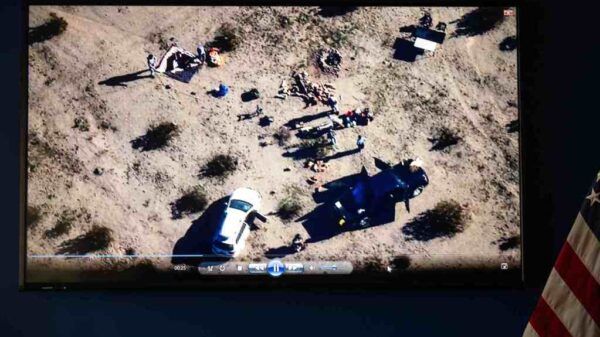Israeli airstrikes in the Gaza Strip resulted in the deaths of at least 40 Palestinians on Wednesday, according to hospital officials, as international mediators accelerated efforts to reach a ceasefire agreement. This escalation occurred the day after Israeli Prime Minister Benjamin Netanyahu met with U.S. President Donald Trump for the second time in two days at the White House.
The discussions between Netanyahu and Trump center around a proposed ceasefire that aims to halt the ongoing conflict, which has persisted for 21 months. The new plan, backed by the United States, seeks to pause hostilities, secure the release of Israeli hostages, and deliver essential humanitarian aid to the beleaguered population of Gaza.
Nasser Hospital in Khan Younis reported a tragic toll, with the latest airstrikes claiming the lives of 17 women and 10 children. Among the deceased were members of the Shaaban family, who were killed while inside their tent. “I found all my children dead, and my daughters’ three children dead,” recounted Um Mohammad Shaaban, a survivor of the strike. She expressed her fear as attacks intensified, stating, “The hospital last night was jam-packed.”
As the conflict continues, many Palestinians express anxiety about the ongoing ceasefire negotiations. In the Muwasi area, where families live in makeshift tents after being displaced from their homes, residents like Abeer al-Najjar struggle to secure basic necessities. “I pray to God that there would be a pause, and not just a pause where they would lie to us with a month or two,” she lamented. Her husband, Ali al-Najjar, described the challenging summer conditions, highlighting the lack of drinking water amid the oppressive heat.
The humanitarian crisis is dire, with many families relying on water trucks that arrive infrequently. Amani Abu-Omar noted that these trucks come only every four days, leaving her children dehydrated and vulnerable to skin conditions. “We had expected ceasefires on many occasions, but it was for nothing,” she expressed.
The current hostilities began after Hamas launched an offensive against Israel on October 7, 2023, resulting in approximately 1,200 Israeli fatalities and the abduction of 251 hostages. Most hostages have since been released during previous ceasefires. According to Gaza’s Health Ministry, Israel’s military actions have claimed over 57,000 Palestinian lives, with more than half of the casualties comprising women and children. While the ministry operates under Hamas, its figures are widely regarded as some of the most reliable by the United Nations and other international organizations.
In the aftermath of their recent discussions, Netanyahu informed reporters that he and Trump are aligned in their goal to dismantle Hamas. He further asserted that the cooperation between Israel and the U.S. is at an all-time high. Trump’s Middle East envoy, Steve Witkoff, is expected to travel to Doha later this week to continue indirect negotiations with Hamas regarding the ceasefire proposal. Witkoff mentioned that three significant areas of disagreement had been resolved, though a critical issue remains unresolved.
In addition to the ceasefire talks, Netanyahu and Trump discussed the recent military successes against Iran, emphasizing the potential for expanding peace initiatives in the region, including the normalization of relations between Israel and Saudi Arabia. This follows the Abraham Accords, which facilitated diplomatic relationships between Israel and several Arab nations during Trump’s administration.
As the situation continues to evolve, both the humanitarian crisis in Gaza and the ongoing diplomatic efforts will remain in focus for the international community.







































































